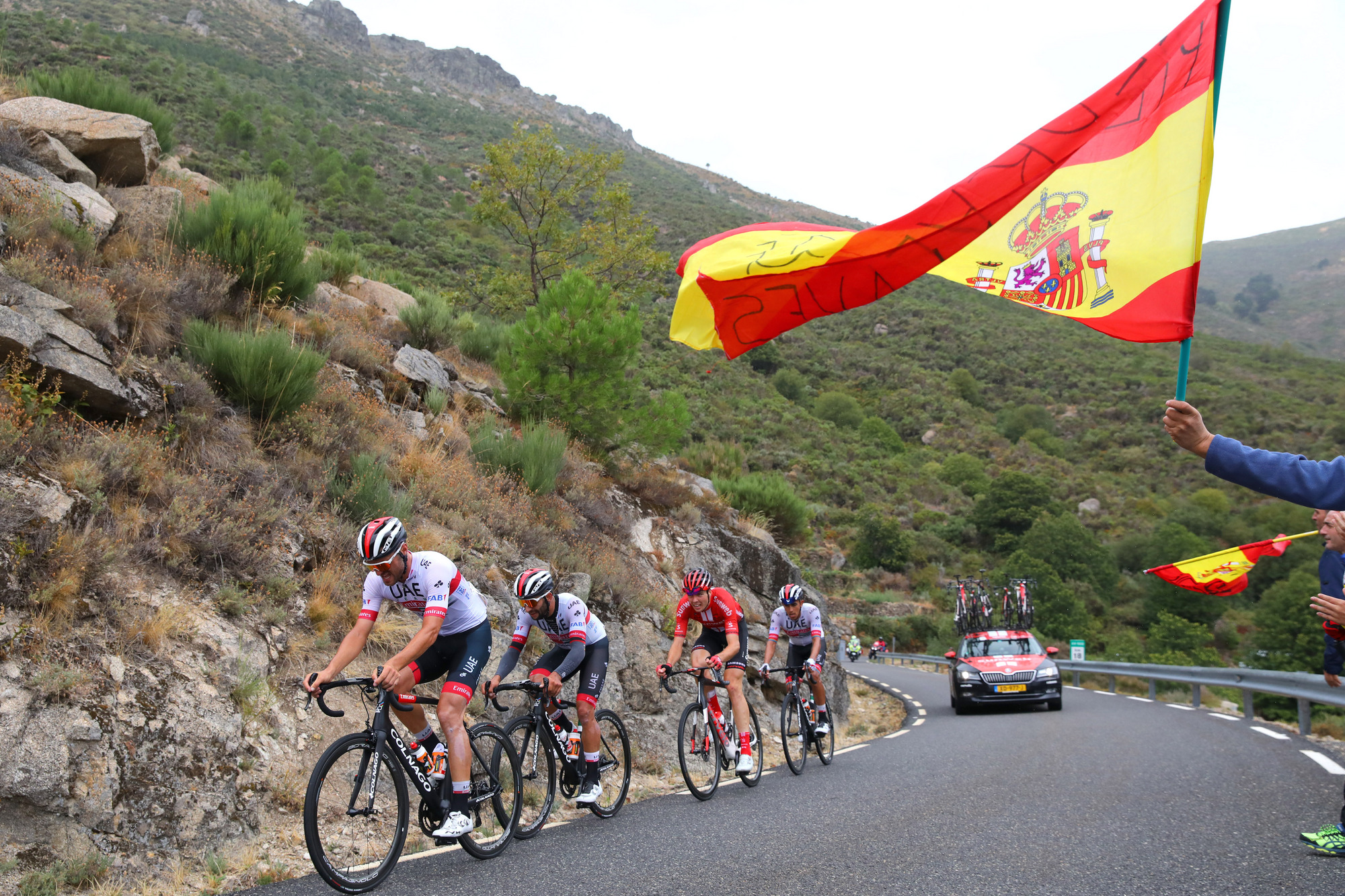Spectators banned from roadside on Vuelta a Espana's major climbs
'La Vuelta deeply regrets that the current situation doesn't allow the public to be present at those points'

The Vuelta a España will attempt to protect the riders and those working on the race from COVID-19 by barring spectators from standing at the roadside on most of the major climbs at this year's shortened, rescheduled Spanish Grand Tour, which is set to take place from October 20 to November 8.
As a number of other races have done in an attempt to stop the spread of the coronavirus, the organisers of the Vuelta, Unipublic, have moved to apply a number of restrictions to the race and are encouraging fans to stay at home and watch the race on television.
Earlier this month, Unipublic announced – in consultation with the Basque Country government – that the public would be banned from watching the race on the Alto de Arrate, on stage 1, and the Puerto de Orduña, which is used twice on stage 7, but have now extended the ban to climbs on seven other stages.
"The organisation of La Vuelta, in coordination with health authorities and the government delegations of all territories crossed by the route of the 75th edition of the race, have agreed to apply a series of restrictions to some departures, finish-lines and mountain passes, limiting the amount of public that may attend," Unipublic said in a statement on Tuesday.
"La Vuelta deeply regrets that the current epidemiological situation in Spain does not allow the adequate conditions required for the public to be present at those points," it continued, and said that the restrictions would be in place for stages that include the summit finish to stage 6 on the Col du Tourmalet in France on October 25, and on the climb of the Angliru, where stage 12 will finish on November 1.
In all, the public will be prevented from attending the race on nine different climbs on nine stages, with Unipublic reserving the right to make further changes and add more restrictions as deemed appropriate as the race approaches and continues.
The climbs on which spectators will be banned, or restricted in number, are:
Get The Leadout Newsletter
The latest race content, interviews, features, reviews and expert buying guides, direct to your inbox!
- The Alto de Arrate on the opening stage
- La Laguna Negra (Vinuesa) for the finish of stage 3
- The Col du Tourmalet summit finish on stage 6
- The Puerto de Orduña, which is covered twice during stage 7
- The Alto de Moncalvillo summit finish to stage 8
- The Alto de la Farrapona (Lagos de Somiedo) summit finish on stage 11
- The Alto de L'Angliru finish on stage 12
- The uphill finish at Mirador de Ezaro (Dumbria) on stage 13
- The summit finish at the Alto de la Covatilla on stage 17
Additionally, the race will take place without its publicity caravan, thereby lessening the attraction of the live race experience to families, as well as preventing access for fans to the team buses at stage starts and finishes.
"The reduced group of organisation personnel, media, sponsors, teams and state security forces that will travel with La Vuelta 20 will be subject to strict sanitary protocols," the statement said. "The organisation will also rigorously enforce a maximum capacity control in all restricted race areas. The team parking area – a space that is usually open to the public in order to allow fans to get closer to the riders – will be completely closed-off to the public in order to guarantee the protection of the athletes and of the personnel working with their respective teams.
"These restrictions, already important today, may be modified in accordance with the evolution of the situation over the coming days," it read, no doubt mindful that in other parts of Europe, both the men's and women's editions of Paris-Roubaix, which should have taken place on October 25, have now been cancelled, while the ongoing Giro d'Italia has seen a number of riders and teams affected by the coronavirus pull out of the race in recent days.
"The organisation of La Vuelta will use its different social media channels, as well as its official website, to announce any updates," the statement continued. "Meanwhile, it has launched a communications campaign in order to make fans aware of the need to enjoy La Vuelta from home this year."
The race has adopted a slogan – "Help us to protect La Vuelta: Please, stay home" – with the social-media hash-tag #LaVuelta20EnCasa.
"The objective is to avoid any type of crowds surrounding the event, by respecting the criteria established by the national and autonomous health authorities at all times, with whom we maintain constant and uninterrupted communication, just as we have always done," Unipublic stated.
Cyclingnews is the world's leader in English-language coverage of professional cycling. Started in 1995 by University of Newcastle professor Bill Mitchell, the site was one of the first to provide breaking news and results over the internet in English. The site was purchased by Knapp Communications in 1999, and owner Gerard Knapp built it into the definitive voice of pro cycling. Since then, major publishing house Future PLC has owned the site and expanded it to include top features, news, results, photos and tech reporting. The site continues to be the most comprehensive and authoritative English voice in professional cycling.